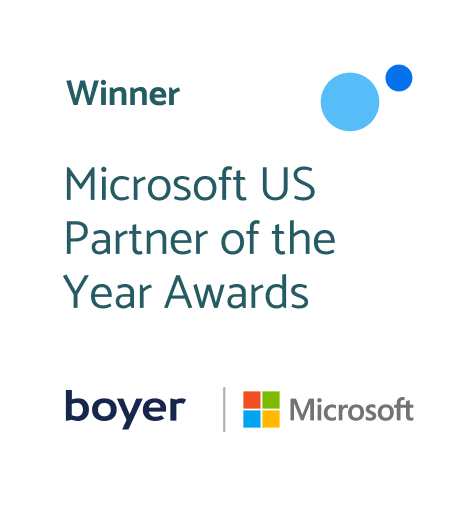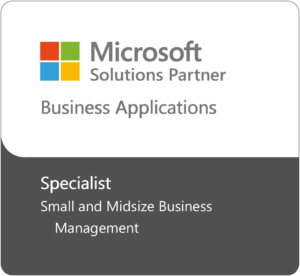Is Microsoft’s accounting solution a good alternative to QuickBooks?
QuickBooks: Every accountant knows it. Just about every accountant has used it. Sure, alternatives to QuickBooks exist, but few have garnered the same popularity.
Whether you love it or hate it might depend a lot on the size of your company. Since the 1990s QuickBooks has been the accounting system of choice for small and start-up companies — with good reason. It’s easy to learn, easy to use and capable of managing the finances of most small businesses.
Now there’s a new kid on the block that threatens to take a bite out of QuickBooks’ popularity. Dynamics 365 Business Central, Microsoft’s newest claim to fame in the world of accounting software, offers state-of-the-art financial management capabilities at a fraction of the cost.
Is it really everything it’s touted to be? Here are 10 features of Dynamics 365 that QuickBooks users should know:
- Scalable financial management
- Cloud only
- Multi-lingual and multi-company
- Less recognizable/newer
- Integrates with other Microsoft tools
- User role options/security access
- Robust audit trails
- Detailed financial reporting
- Deferred revenue/expense
- External-only payroll options
Let’s take a closer look at each of these …
1. Scalable financial management
QuickBooks works great for start-up businesses and small companies, but it lacks the capacity to grow with your company. Dynamics 365 Business Central, on the other hand, is fully scalable, accommodating small, mid-sized and even large enterprise companies.
2. Cloud only
Dynamics 365 is a Software as a Service (SaaS) product, meaning it is entirely in the cloud. However, its on-premise counterpart is Dynamics NAV, which has the exact same functionality. In fact, Microsoft combined the two products under the same Dynamics 365 name last year, giving users the chance to choose between cloud, on-premise or a hybrid of the two deployment options.
3. Multi-lingual and multi-company
QuickBooks is limited in multi-use options whereas Dynamics 365 is multi-lingual and can track multiple companies at once.
4. Less recognizable/newer
One of QuickBooks’ strengths is that just about every accountant is familiar with the tool and can get started at a new job quickly. Dynamics 365 will take a little longer to learn, but it is based on other tools you use (i.e. Excel) so the learning curve might not be as steep as you think. And lest you worry that Dynamics 365 is just too new of a product – take heart. It’s based on Microsoft’s tried-and-true NAV product so is virtually bug-free already.
5. Integrates with other Microsoft tools
Speaking of working with other familiar tools, Dynamics 365 can fully integrate with the entire Microsoft family of products that you already know and love. Because it is a Microsoft accounting solution, it’s already geared to work seamlessly with Outlook, Word, Excel, Cortana and more. It also integrates with the entire line of Dynamics 365 business management solutions.
6. User role options/security access
If you’re familiar with QuickBooks, then you know full well that the user roles and security access is, well, limited. Dynamics 365 is very secure, allowing users to work within the cloud and within the system with no worries that they will be compromised.
7. Robust audit trails
On a related note, Dynamics 365 adds an audit trail feature that’s not available in QuickBooks. This allows managers to see who logged in when, what changes were made to master records and how to revert back if needed.
8. Detailed financial reporting
The analytics capabilities are a huge step up in Dynamics 365 too. While you can run the occasional report in QuickBooks, Dynamics 365 Business Central offers full integration to Power BI, one of Microsoft’s top reporting options.
9. Deferred revenue/expense
Dealing with deferred revenue and expenses? QuickBooks has no way to recognize or compensate for the time delay, but Dynamics 365 does.
10. External-only payroll options
Perhaps the only weak point for Dynamics 365 is that it doesn’t have the best built-in payroll option. That’s easily fixed, however, with one of more than 600 integrations you can easily download on Microsoft’s AppSource – a one-stop shop for just about any add-in you could possibly dream up for your company’s business management needs.
If you love your QuickBooks system and it’s still working well for your needs, great! Stick with what you know and love.
But if you’re starting to experience growing pains or find yourself wishing you could do more with your accounting system, Dynamics 365 Business Central might be just the alternative to QuickBooks that you need. Contact us at 763-412-4300 or info@boyerassoc.com to learn more, or register for our biweekly demo on An Introduction to Dynamics 365 Business Central.







